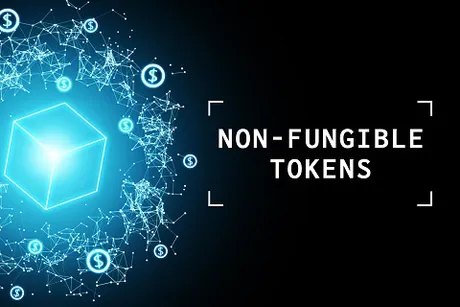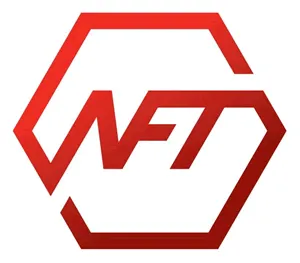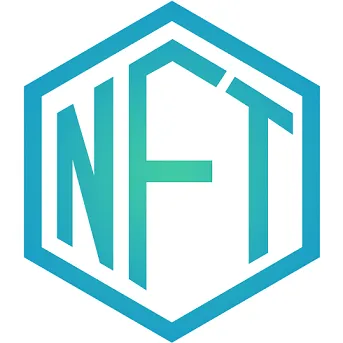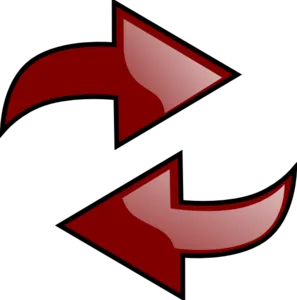
For those of you who pay attention to @penguinpablo's stats, you may have noticed that I created quite a few Hive accounts recently. I have admitted as much as well.
https://leofinance.io/@edicted/1000-account-token-milestone-and-leo-airdrop-worth-usd6000
It was only 23 days ago that I announced that I had finally reached the epic milestone of being the proud owner of 1000 account tokens. Two weeks later, I used every single one of those tokens and now I'm in control of over 1000 claimed Hive accounts.

Why would I do this?
The core reason for doing it is that I believe claimed accounts have a lot more value at a time like this than account tokens do. I'm fairly creative so while I was droning away at work I'd just think of random names people might want to use as Hive accounts.
Where are we headed?
Whenever I thought of an account name that had already been claimed, guess when that account had been created? Nine out of ten times, the account in question was taken in December 2017 or January 2018, during the last mega bull run. How many more accounts will be claimed in 2021 when Bitcoin is trading above $250k? So far, less than 1.5M accounts have been created in total.
Account squatting is pretty lame... right?
Many have rolled their eyes at this prospect of claiming accounts that I don't necessarily intend to use for myself. Although you never know when a bot army will come in handy.
Just the other day my witness team was comparing me to noganoo, the dirty troll who exploited the Steemit onboarding system to farm the delegation money of new accounts. He's basically the reason Steemit couldn't onboard users during the last bull run.
Hopefully we don't see a repeat of that exploitation the next time around. We really really need to implement RC pools before then to avoid the need to give delegations to new accounts in order to transact on-chain.

I must admit, that even I have been asking myself recently why I've gone through all the trouble to create these accounts, but then I realized something. Hive absolutely needs a market for buying/selling accounts.
Hive accounts are the original NFT.
Every Hive account has a unique public key that is also a username. Every Hive account is secured by unique private keys and has a unique reputation within the community. Every Hive account can use their credentials to log in to dapps on Hive, giving them a unique experience that revolves around said account (example: your account made progress in a video game on Hive).
All these factors point to one thing:
Hive accounts are NFTs. NFTs have value, supply, and demand. It's only a matter of time before a market is born to buy and sell accounts.
As a gamer this makes perfect sense to me. Tons of third party apps have been born due to the fact that corporations don't want users selling accounts while the demand to do it still exists, therefore grey-markets emerge to meet this demand.
Where supply and demand meet, markets are forged.
This is an inevitable outcome of Hive accounts, so it only makes sense that I would start claiming them now.
The Twitter metric
Twitter has been extremely helpful in terms of putting this all into perspective. I've been using the search functionality to determine how popular a username on Hive might be. Let's take this opportunity to think of some random accounts that are bound to have demand.
@tinkerbell
This basic bitch name is surely to have a lot of demand. We even see on Hive that it was created before the mega-bull run in August 2016, meaning it is an even more popular account than most of the ones out there. So what happens when you click on "Go to @tinkerbell" on Twitter?
Quite simply put every single account that I have searched for on Twitter was usually created in 2008 or 2009 and is now a derelict dead account. Except for @preparedwombat. You sir, stand alone, and your account still hasn't been taken on Twitter. Kudos to you.
Even @edicted was taken on Twitter in 2010
And today it is yet another one of the millions of dead accounts.
If I'm being honest I was kind of a grandpa when Twitter launched and was absolutely determined that it would die a swift death to Facebook. After all, nothing can compete with Facebook, right?
These dead Twitter accounts have unrealized value.
So why don't these companies create these desired markets to buy and sell accounts when the demand is clearly there? Why do gaming companies like Blizzard Entertainment ban accounts for farming/selling gold? Why are these markets pushed underground?
So many reasons
The first reason is simple: if you monetize accounts then people will do what I am doing, and they'll take a bunch hoping to scalp them later. That's pretty fucking lame, and when all you need to create an account on Web 2.0 is to provide an email address, this causes bots to attack the system and scoop up thousands and thousands of accounts for zero cost.
The second reason is that allowing users to profit from value created on the network taunts regulators into attacking these networks with their bullshit laws. This is a big one. The possible value Web2 companies could gain from such a market is small, and the overhead regulation threats are large, forcing the potential underground. This kind of regulation is something that decentralized operations do not have to worry about. #winning
So even though the @fireandblood account on Twitter might be worth $100 to someone, they'll never have the opportunity to buy it, because the market for such a thing will never exist on a mainstream level. The demand to buy and sell gaming accounts is much much higher than social media, and even then it's hard to facilitate for various reasons.
Account recovery
Here's another reason why buying/selling accounts on Web2 is not allowed. How does one know the difference between someone who sold their account and someone that had their account stolen? This allows people to sell their account and then recover it from the centralized entity. On a network like Hive this is easily avoidable via the rules that are in place. Once the password or recovery account is changed this process cannot be reversed after 30 days passes.

Business model
So your plan to onboard users is to charge them for accounts? That's a fucking stupid idea!
I agree. Web2 users will not pop over to Web3 without a smooth transition. Try to force new users to pay for things like accounts that they think should be free and they'll just assume it's all a scam.
Personally I think in the long run everything will be paid for via micro-transaction payment streams. These micro-streams will flow in and out of every account. Users will pay for everything and they will get paid for everything they do. However, we have to reach mainstream adoption before this new model will be accepted, so until then we require transition models to get users out of the old system.

Transition model
Honestly this is all going to make a helluva lot more sense when Hive is bursting at the seems from activity. Listen to @theycallmedan's post today for more info on that front. Link.
In any case, imagine someone wants to create an account on Hive. They type in a name, but the name has been taken. If the onboarding system in question is connected to the API that sells accounts, it might realize the account that has been typed in is actually for sale, and can relay that information to the new user.
So the user gets redirected to the service that buys and sells Hive accounts (or perhaps not, more on this later). There they see that the account they wanted is for sale for $10.
Wow, really? Lame... I'm not paying $10 for an account that I'm not even really sure I'm going to use.
Yep, true, and that is the beauty of the system, because they don't actually have to buy the account for $10; they can simply rent it on credit. In fact, the frontend doesn't even have to tell the new user that the account costs $10 at all depending on how one wants to play with the UX.
And so begins the slow journey of a new Hive user figuring out the Hive ecosystem. Rather than throwing them into the shit right away, they are simply given the posting key to the account so they can start logging into dapps and post directly on chain. In fact, as Leofinance has shown us, even that is jumping the gun, and the frontend in question can post on the user's behalf without them even having to know anything about the private key system.
Again, this onboarding frontend that sells accounts can lead new users on a defined and narrow path that allows them to learn the ropes without overloading them with information all at once. Users will be shown how they can earn money on the platform, and I hope to god by that time there will be far more profitable things to do than just "blogging" and "social networking"... yuck!
As a gamer I envision being able to offer new users a wide variety of activities that could generate value on the platform. Going full meta, if the user in question is good at coming up with screen names, they could literally make money on Hive simply by coming up with some badass usernames that haven't been taken yet. Proof-of-brain at its finest.
Again, as a gamer I see things a bit differently here. Imagine being able to offer new users money to create a puzzle for a puzzle game. If that puzzle gains popularity they could earn quite a bit for creating it, assuming this dapp is popular enough and has a big enough inflow of value and potential investors/players.
In that same vein, users could create maps or scenarios in an RPG to make even more money. Or even highlight more technical skills like the ability to create skins and animations in games that cost tokens to equip. The possibilities are truly endless and we haven't even scratched the damn surface yet.
So back to the business model.
So this new user has "purchased" the account that they wanted, but they "purchased" it on credit that they'll never actually have to pay unless they want to own the account for real.
The way I'm imagining it is that these credit accounts would allow the users to move around the HBD that gets generated from rewards, and perhaps even associated tokens, but the locked HivePower would stay locked until they paid off the account. And they would not attain the owner key until they paid off the account or be allowed to powerdown.
The entire UX (user experience) could be tailored in such a way that gamifies the entire experience of learning about the platform itself, so instead of painstakingly having to ask other users 1000 questions after getting slapped with all the complexity of these systems, they'd be slowly guided at their own pace. Because if we think Hive is going to magically get less complicated over time we are kidding ourselves. However, we can greatly simplify the barriers to entry down to tiny little speed-bump transitions.
Decentralized ownership of NFTs
Because Hive accounts are indistinguishable from NFTs those who control the keys have provable ownership over those accounts. A market that allows the buying of selling of accounts allows anyone with access to accounts to tap into this market.
What is the value of this market?
If I were to make create this market and bring it to life today, it would have near zero value. The supply and demand for Hive accounts is practically non-existent today. However, we will see during bursts of mega-bubble activity that accounts are worth much more, especially when free account tokens are depleted and users are forced to create accounts by burning 3 Hive.
In addition, accounts gain value over time and more and more dapps connect to the ecosystem. It might not be obvious today, but ten years down the road this service will be absolutely necessary given the dozens of games, DeFi options, and other services that will be provided in the years to come. The synergy of this network is ever expanding, just like Bitcoin and Ethereum. Our niche is quite a bit different.
Derelict accounts
The vast majority of accounts on social media (and accounts on Hive) and all accounts in general... are inactive. This is a resource that just sits there for ever until the end of time rotting in the database. By creating a market that gives accounts value, many derelict accounts will be recycled back into the ecosystem, saving precious space on the network and even building more value than it had before.
Security
Once crypto starts going mainstream users are going to worry a lot more about account security and account namespace. Sending money to a random string of 32 characters is an anxiety-filled experience, even for me. This is especially potent when we factor in the inevitability that sometimes it takes the Bitcoin network an entire hour to confirm a single block depending on the fate of the hash lottery.
Security and simplicity are going to be the top priorities moving forward. "Send your money to @edicted" is a lot less scary than "Send your money to 0x0384257423890753429875349". Honestly this is going to be a huge factor moving forward into mainstream adoption that a lot of users these days just kind of take for granted.
The value of a Hive account.
What is the value of a Twitter or a Facebook account? These services hope to net an average gain of a few dollars per account per year. The value of a Hive user is much much greater, because a Hive user can bring a ton of value to the network, but at the same time capture a lot of that value for themselves, which creates a positive feedback loop that is absolutely impossible for Web2 to replicate. The average Hive user is worth exponentially more than the average Web2 social media user.
Conclusion
A huge wave of accounts was created during the last mega bull run. Another huge wave of accounts are coming during this next one. The cycles happen every 4 years, and it is critical that we surf these waves correctly, or we'll be left out in the cold just like we were this last time.
I'm now the proud owner of around 1200 Hive accounts, and I hope having these NFTs in their less liquid form inspires me to create an onboarding system that creates value for the network and gives everyone the ability to trade and understand the value of what we have going on for us over here. Communities will be targeted for assimilation into the cryptosphere. Hive is in a very good position to capitalize moving forward. And of course LEO is as well considering the new onboarding system. Good stuff.
Posted Using LeoFinance Beta
Return from Hive Accounts: The OG NFT to edicted's Web3 Blog
